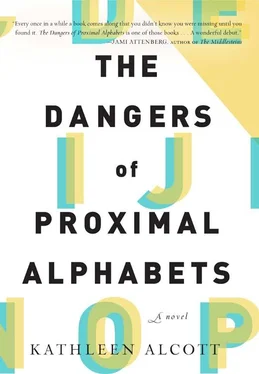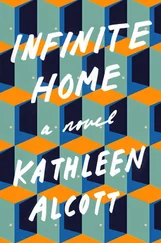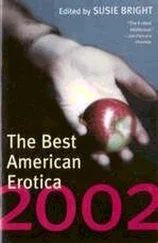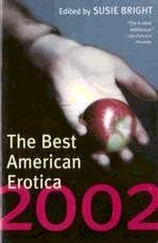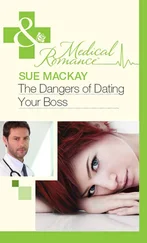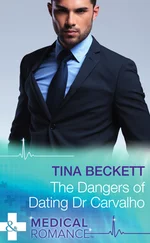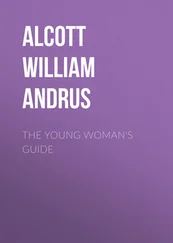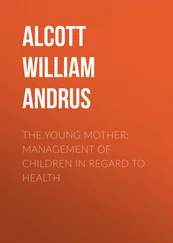It was stunning to see him an administrator, to watch him wrap the blue silk tie around my father’s field of vision, grinning. Julia, who knew and spoke with the deterioration of my father’s health every day, cast nervous glances and fiddled with the radio and asked my father how he was doing back there one too many times. I held his fingers in mine, his portable oxygen tank between my knees as we curved up through the California hills, happy, for once, to yield, to be a passenger. When Jackson finally slowed to a halt on the uneven dirt shoulder, unbuckled the strap across his shoulder, Julia turned to me with such a panicked look that I reached for her hand and told her it would be okay.
“What will be okay,” my father asked. “What?”
“Mom,” Jackson asserted. “Please.” The first word confident, the second desperate.
He helped my father out of the car, put an arm around his waist, and gestured for me to do the same. We made our way down the incline, my father quiet though clearly petrified, his body unwilling to do the things it had loved so.
“Three points of contact,” I offered, then repeated, and he nodded and breathed the way they’d taught him, no matter that the exercises were meant to get him through a day at home, maybe around the block, and never down the untended earth.
It was spectacular and whole and remains an image that feeds me. The reclining padded chair placed just so in the shallow edge of the clear river, a parasol worked into its crown. Just next to it, a tall metal table positioned in the stones, on it resting volumes of my father’s favorite writers, a single proud sunflower, a pen and paper, a cooler full of fruits and drinks and sweet things. Jackson returned my father’s sight once we emerged from the path onto the little beach, and his already struggling lungs just couldn’t cope, and he had to sit immediately and rest awhile before we escorted him to this throne. He barely touched the books that day, sampled only briefly the cherries, just sat there with his feet up and sipped the bitter favorite beer he rarely indulged in anymore. Across the river Jackson kept disappearing and reappearing on various points of the rocks that faced us, sprouting triumphantly like the unlikely green jutting out in strange angles, and my father yelled and cheered every time he leaped into the water, urging him to jump from higher and higher points and clasping the fingers of Julia, who hovered nearby, trying to find her home in the water.

Julia had prepared fanatically, as if trying to impress him or finally say yes, yes, I loved you, love you, will keep loving you.
When I arrived, James, in his mother’s apron, was on a manic upswing, chopping vegetables into fine and finer pieces in the kitchen, carrying snack plates back and forth from the kitchen, asking how I was but lacking the attention span to listen. He was twisting his hair like he used to, and a spray of half-smoked cigarettes kept accumulating on the front porch — he felt, I think, too guilty to smoke the whole thing, knowing this was the pleasure my father had lived and died for.
Photos of my father were everywhere; I could tell Julia wished they always had been, and as such had framed some of them and tried to place others in locations where people put photographs of those still alive: on the refrigerator at a jaunty angle, amid others on the couch-side table in the living room, on her bureau.
I found myself sneering. Hadn’t she been ready? This was obviously an expression of my own guilt for not admitting that his struggle really was reaching its end point. I replayed the last time we spoke on the telephone and attempted to gain some final piece of paternal wisdom. What had he said? And I? And how long did we pause between sentences? And did we laugh?
I tried to tell myself it was a shame, an unfortunate coincidence and nothing more, that the last dialogue I’d had with my father had lacked his general stubborn cheer. He hadn’t even feigned with the “There was something I wanted to tell you but have forgotten.” He came to me as an old man who wanted to talk and me to listen.
There was none of his softness. He cleared his throat and wheezed and began to tell me about the night before my mother died. “There’s no other way to put it, Ida. I had too much to drink. Had too much goddamn liquor. I’d been home all week with you — Mollie was out looking for a job and shopping for goddamn new paint samples for the kitchen even though we’d just — goddamn it we’d just painted the kitchen — and getting coffee with all these new women who went to private colleges in Vermont and had kids around your age — and finally I said, look, I’ve been here in this house all week and I need out”—he was talking too fast and stopped to catch his breath in big gulps, which was exactly what the exercises recommend he not do—“and she said okay fine, you’re right. Okay.
“So we got Julia to come over — her and your mom liked each other all right, actually — did you know the boys were with you the last night your mom was alive? And anyway, Ida, we went down to the Central Club on my insisting. I said, honey, I want a real bar with pool tables and cheap drinks, and your mother said yes even though she didn’t like the idea. That place was pretty bad then, worse than now if you can believe it, and pretty soon after we sat down it was a scary scene. Every guy in the place was staring at her — she was way too pretty, way too smart — and she didn’t like it. I tried to take her mind off of it, suggested we play a game of pool, but your mother … when she was mad like that, she couldn’t focus. She shot a terrible game and the whole time these assholes were starting to snicker, but your mother … she had always refused to let me treat her like a lady, do you understand? ‘None of that Southern charm shit,’ she always said, always pushed the door open for herself, rarely even let me”—he gasped here but in a different way, the kind that precedes a great opening up of the body for a sob—“never even let me coddle her. Ida, are you listening?”
(I was listening, was transfixed. I was also considering what else I had inherited from my father: that insistence that the audience look and listen . How many times had I pleaded to Jackson: Look. Listen. Are you listening? Do you understand? But not stopped to hear his reply. My father didn’t stop either.)
“And so I kept tough on her, didn’t give her any breaks. Pretty much all her balls were on the table and I had three left. She told me she was leaving and I said, hey, come on. Don’t be a poor sport. But she left, Ida, and I didn’t follow her — if I had tried to she wouldn’t have let me, do you understand? And so I stayed, had a grand old time feeling like I was, you know, ‘integrating with the locals.’ Some idiot was impressed by my being a newspaperman, the stories I told him, and he gave me, I kid you not, a hat and a steak. He was a meat delivery guy and his truck was out back, went out there and got me a steak and gave me the hat off his head. Don’t know why about the hat, still.”
My father laughed, here, and it was the closest to the hoot he once famously produced I’d heard in a couple of years, until he remembered what story he was telling, exactly.
“But Ida I stayed ’til last call. I don’t really remember the walk home, quite, but I know I had the mind to put that steak in the freezer and crawl into bed. And that’s it. I remember vaguely that I was looking forward to telling your mother about this guy, about him insisting I take his meat and the hat, that I knew she would laugh at what an asshole she’d been to leave and what an asshole I’d been to stay and get so tossed. I remember planning on a big dinner for the three of us the next night — even though your teeth weren’t ready yet, I remember thinking, yeah, baby’s first steak, and smiling at the future memory.
Читать дальше
